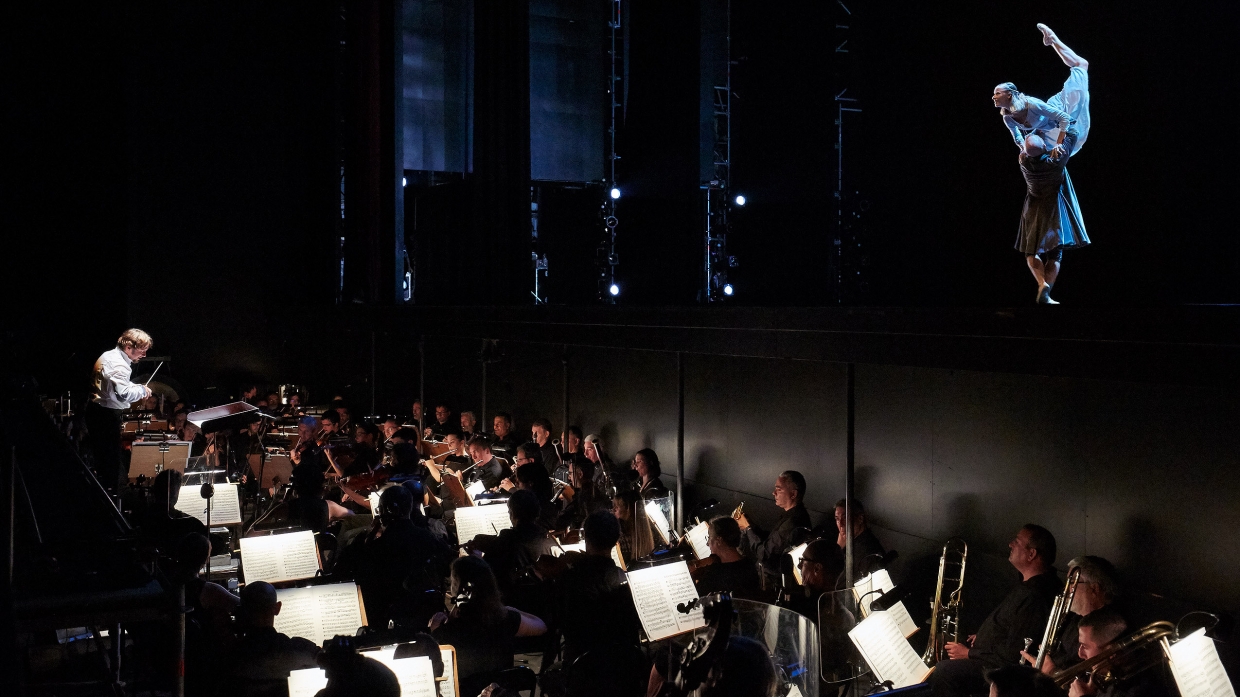Classical music
Euskara. Kultura. Mundura.
 Classical music
Classical music Basque composers and performers fill the world with music. Basque classical music has produced world-renowned figures in the past and continues to do so today. Maurice Ravel is without a doubt one of the greatest composers of Basque origin. Ravel shared certain things with other Basque composers, many of whom spent their careers outside the Basque Country, working in other languages, while never forgetting their Basque identity. Choirs, soloists and instrumental ensembles complete the map of classical Basque music. The importance of this type of music became clear in 1982, when only in its second year, the first Basque Government created Euskadiko Orkestra, the Basque National Orchestra. In Gipuzkoa, Arava and Bizkaia, the higher school of music is Musikene; in Navarre, it´s the Pablo Sarasate Conservatory and in Iparralde, the Maurice Ravel Conservatory .
Attempts to modernize Basque classical music came with the Age of Enlightenment, focusing on Europe and particularly on France. The Royal Basque Society of Friends of the Country (Euskalerriaren Adiskideen Elkartea) was at the core of the movement, leading in the development of secular music, albeit not without opposition. This was the environment that saw the emergence of composer Juan Crisóstomo Arriaga, who created his first composition at the age of eleven. His early death before his twentieth birthday deprived the Basque music world of an exceptional figure. Two musicians of Basque origin stood out in late 18th century Madrid: Hilarión Eslava and Blas de Laserna. The first marked the transition in Spanish music from the religious to the secular. The second was the great master of the tonadilla, a kind of miniature opera featuring popular and folk songs. Toward the end of the 19th century, the so-called nationalist schools emerged in a large part of Europe, which sought to incorporate the musical traditions of each nation into classical music. In the case of Basque music, these elements would be the zortziko, most closely associated with Jose Maria Iparragirre, and to a much lesser extent, the jota style of music and dance. In the early 20th century there was an attempt to create a national opera in Basque, but the project was upstaged by the success of Spanish zarzuela. The zarzuelas by Jesús Guridi and Pablo Sorozabal were a great success. Meanwhile, Jose Antonio Zulaika, better known as ´Aita Donostia´ (Father Donostia), stood out for his research in Basque music.
In the period following the Spanish Civil War, Jesús Guridi, Francisco Escudero, Karmelo Bernaola and Antton Larrauri were the most influential Basque composers. Agustín González Acilu is one of the most relevant contemporary Basque composers today, while the most internationally renowned figure in Basque musical composition is Luis de Pablo. Both are known for their continuous experimentation. As for the younger generation, Zuriñe Fernández Gerenabarrena, a disciple of Karmelo Bernaola, shines with her own light. And just like Bernaola, she has also written music for films. Other essential names in film score composing include Angel Illarramendi and Alberto Iglesias.
The Basques are possibly best known for their choirs and choral music, both in the Basque Country and abroad, with many Basque choral groups garnering international praise. The choral societies of Pamplona, Donostia, Tolosa and Bilbao are among the most outstanding. Choral music is so popular that even the smallest villages have their own choirs, all grouped under the umbrella of the Confederation of Choirs of the Basque Country. As for soloists, the voice of opera singer Julián Gayarre is perhaps the most important in Basque music history. Today the soprano Ainhoa Arteta is the most internationally recognized Basque voice, along with soprano María Bayo, countertenor Carlos Mena and tenor Andeka Gorrotxategi. The Basque National Orchestra and Bilbao Orkestra Sinfonikoa (BOS) are the most important musical institutions in the Basque Country, and along with the Pablo Sarasate Orchestra of Nafarroa carry out a great pedagogical work with children. Music bands are part and parcel of Basque culture. Txistulari bands featuring three-holed txistu flutes and drums are unique to the Basque Country.
Nicanor Zabaleta was the best harpist of the 20th century. Joaquín Achúcarro is the greatest Basque pianist today. Other outstanding Basque musicians include Ricardo Odriozola (violin), Asier Polo (chello), Josetxu Obregon and Alfonso Gómez (piano) and Igor Silguiero (saxophone). Younger Judith Jauregi is standing out as a pianist. And Juanjo Mena and Inma Shara are among the most highly-recognized conductors internationally.
Do you want to learn more about Basque classical music? Download this book for free.
Related content
-

Basque classical music
Do you want to know more about Basque classical music? Download this book for free. (Basque - English). Basque - French and Basque - Spanish versions are available by browsing the website in Basque and in Spanish respectively.
-

Basqueculture.eus
Visit Basqueculture.eus and get inspired with articles and stories about our culture and society.
-

10 things to know about Basque culture
It’s not easy to condense the culture of a country into a brief brochure. This is an attempt to spark curiosity and encourage readers to learn more about the Basque language, culture and contemporary creation.
-

Euskadiko Orkestra
The Basque National Orchestra is a world-class symphony orchestra with 7,000 subscribers and an average annual audience of 150,000.
-

Musikene
The Musikene Higher School of Music of the Basque Country was founded by the Basque Government in the 2001-2002 academic year in order to provide third-level musical studies.

